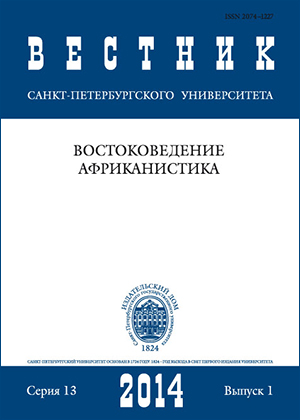Hypnosis techniques in missionary activities of Jesuits in Vietnam in the XVII century
Abstract
This article is the first attempt to analyze the well known source of the first half of the XVII century “Catechism explained in Eight days” as an effective tool to change the religious identity of the population of Vietnam from the point of view of the psychotherapy and hypnology. Using modern terminology, the study describes the techniques and means of verbal influence and suggestion used by the missionaries, which allowed them to reprogram the mind and change the behavior of local residents. This approach explanes not only why, but also how Jesuit Alexander de Rhodes could begin the process of mass Catholization in Vietnam with his book “Catechism explained in Eight days”. This technique is compared to the methods of another prominent Jesuit Matteo Ricci, who had been worked in China. The research and systematization of the available information leads to the conclusion that during the conversion to Catholicism in Vietnam in the first half of the XVII century European missionaries at a high professional level had used battle hypnosis technique, but they did not apply it as a therapy, but for political and even geopolitical purposes. Refs 22. Figs 3.
Keywords:
Catholicism, catholization, catechism, conversion technology, cultural adaptation, defamation, hypnosis, psychological correction
Downloads
References
Downloads
Published
How to Cite
Issue
Section
License
Articles of "Vestnik of Saint Petersburg University. Asian and African Studies" are open access distributed under the terms of the License Agreement with Saint Petersburg State University, which permits to the authors unrestricted distribution and self-archiving free of charge.





